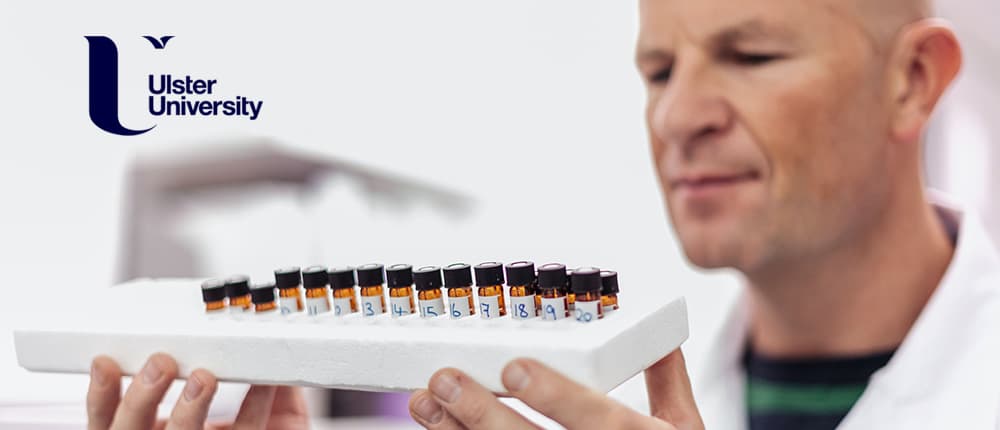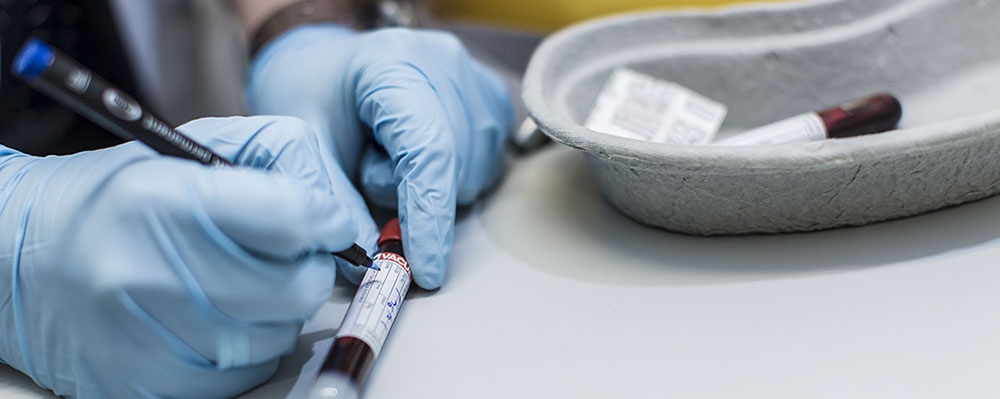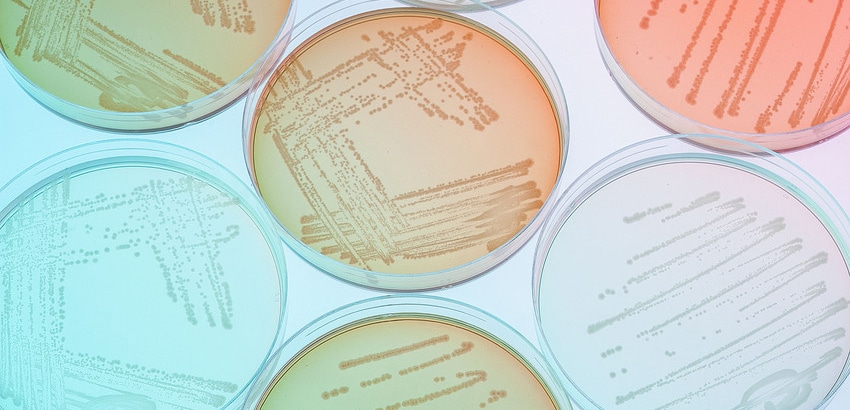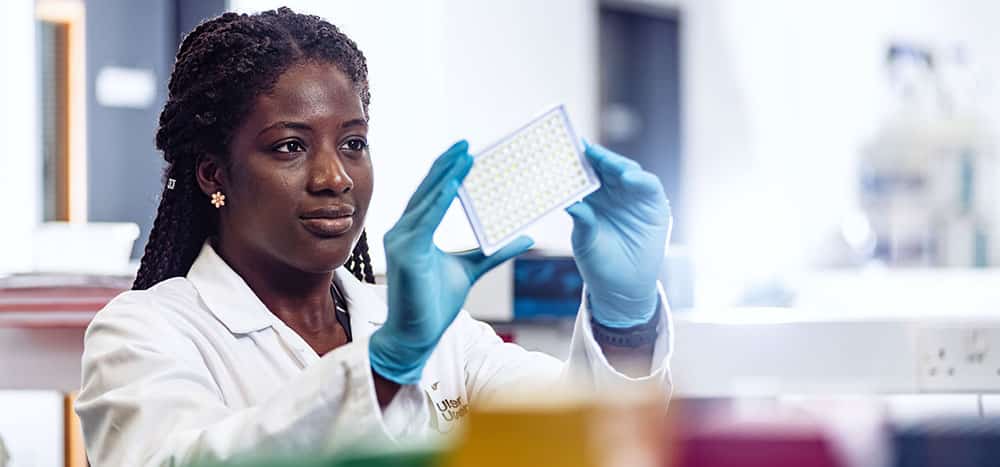Blogs
Keep up with all the latest thoughts and opinions.
We make it happen.
What biomedical science specialisms are available at Masters level?
Tuesday, July 18th, 2023

As a Biomedical Science graduate student, you will likely be familiar with the biomedical science specialisms you may wish to pursue further at postgraduate level in order to move into your chosen specialist career path.
While at undergraduate level you will have dipped your toes into biomedical research and gained foundational knowledge at a broad level (including a specialism at level 5 in your 2nd year), at Masters level you’ll advance your knowledge and delve deeper into the particular specialism suited to your interests.
On Ulster University’s online Biomedical Science MSc, you have a choice of four optional specialist modules: cellular pathology, clinical chemistry, haematology and medical microbiology.
Below we outline these four specialised fields – along with their applications and career prospects – to help prospective postgraduate students know all their options.
Biomedical science pathways into practice
With a biomedical science Masters, you will be ab le to embark on a career in your chosen specialism, often working under the title of ‘specialist biomedical scientist’.
It’s important to note that in order to become a clinical pathologist, haematologist, or patient-facing consultant, however, you will need to hold a medical degree and as many as five years of specialist training.
Specialise in cellular pathology
Cellular pathology concerns itself with the study of cells, tissues and organs to detect abnormalities. It is broken down into several specialised areas, including:
Histopathology (a.k.a histology) and cytology – these associated fields study tissues and cells to help detect and diagnose cancer and latent disease through modern molecular techniques.
Forensic pathology – this field is focused on the determination of cause of death through post-mortem examination, usually during the investigation of criminal or civil law cases.
Neuropathology – focused on the diagnosis of tumours, inflammatory disorders and infections (such as in the central and peripheral nervous systems and skeletal muscle) through cellular analysis.
Additional areas of importance include immunology, genetics and toxicology.
Explore all specialisms in more detail on the Royal College of Pathologists website. It should be noted, that becoming a pathologist or consultant in the field requires a medical degree and five years of specialist training. With a biomedical science Masters, you would often start out as a ‘specialist biomedical scientist’ in the field of cellular pathology.
Biomedical science careers in cellular pathology
After studying cellular pathology at Masters level, graduates may progress within the field to work alongside doctors, analysing results and advising on treatment. You’ll also gain the skills to work in a wide range of roles including lab supervision and management, within hospitals, schools and universities.
Research careers in a medical or pharmaceutical research lab also open up to you as a Masters graduate, where you may work on developing new techniques for diagnosing and treating diseases and pathologies such as infertility, neurological disorders and cancer, through blood testing, biopsy sampling and screening.
If you’re currently working in cellular pathology, our Masters programme will help you progress to a more senior position. You might also wish to explore your options in academia, perhaps completing further study at doctoral level.
Get insight into a day in the life of a ‘specialist biomedical scientist’ in cellular pathology on the IBMS website.
Specialised biomedical science careers in cellular pathology include (but are not limited to):
- Histopathology / cytology
- Neuropathology
- Forensic pathology
- Immunology
- Genetics
- Toxicology
Histopathology and forensic pathology are closely related, regarding the study of cells collected during post-mortem. Neuropathology is more singular in its approach (studying only the brain and its related processes), while immunology and genetics tend to utilise broader data sets to research pathologies among genetic groups and social categories.
Study cellular pathology at Ulster University
The online Biomedical Science MSc at Ulster offers the 30-credit ‘Advances in Cellular Pathology’ module which provides a broader understanding of new developments in cellular pathology. On the module, you will consider the advantages of utilising molecular pathology and immunocytochemical technology to aid diagnosis and prognosis, as well as to predict treatment response using molecular biomarkers.
At the end of the module, you will be able to analyse, discuss and demonstrate your understanding of established and newly emerging techniques – including imaging and molecular detection – considering their merit and applicability in modern medicine.
Specialise in clinical chemistry
Clinical chemistry (a.k.a chemical pathology) concerns itself with the qualitative and quantitative analysis of body fluids (blood, urine, spinal fluid, faeces, tissue and other biological materials such as analytes) for diagnostic and therapeutic purposes.
Wide-ranging in scope and ever more important through the application of big data, clinical chemistry can be further broken down into:
Laboratory diagnostics – focused on evidence-based testing and interpretation to ensure the clinical usefulness of testing.
Chemical pathology – concerned with the chemistry of the body, this area is associated with the diagnosis and treatment of metabolic diseases such as diabetes.
Bioinformatics* – an area utilising laboratory data and computational tools to collect and interpret biological data (such as genetic and genomic information) to support the delivery of patient care. Ground-breaking projects in the field include the 100,000 Genomes Project.
*Bioinformatics is an optional module on the Biomedical Science MSc and although not strictly a clinical chemistry specialism, it is an area that serves to inform various specialisms within the field, including clinical chemistry.
Clinical endocrinology – an area specialising in the testing and study of hormones to diagnose endocrine disorders relating to the thyroid, pancreas, adrenal and pituitary glands, among others.
Toxicology – an analytical field concerned with the diagnosis, treatment and prevention of poisoning, through measurement of toxic compounds (alcohol, drugs, poison) in biological samples.
Discover more career opportunities within the field of clinical biochemistry on the NHS Health Careers website.
Biomedical science careers in clinical chemistry
Masters graduates in the clinical chemistry field can progress into careers as clinical chemists and scientists focused on chemical analysis within a clinical or research setting.
Specialised biomedical science careers in clinical chemistry include:
- Clinical biochemistry
- Chemical pathology
- Endocrinology
- Toxicology
- Medical technology
- Laboratory technician
- Bioinformatician
While chemical biochemistry, pathology, toxicology and endocrinology involve testing biological samples for detection, diagnosis and treatment, the more technical side of chemical biochemistry allows for close work with big data and analytics, such as within bioinformatics and technician roles.
Study clinical chemistry at Ulster University
The online Biomedical Science MSc at Ulster offers you the opportunity to take the ‘Recent Advances in Clinical Chemistry’ module for 30 credits. This module will allow you to build upon fundamental knowledge of clinical biochemistry and gain a more comprehensive understanding of new developments in clinical diagnosis, monitoring and treatment.
You will gain the ability to critically evaluate new analytical and molecular methodologies within clinical and research laboratories, understanding how physiological and pathological processes affect biochemical investigations.
With this knowledge, you can then explore the potential benefits of new therapeutic agents in treatment and utilise data sets for purpose of diagnosis and management of common metabolic disorders.

Specialise in haematology
Haematology involves the diagnosis and treatment of patients with blood and bone marrow disorders. Practicing haematologists must hold medical degrees, but much of the diagnostic work is done by biomedical scientists in the laboratory.
The field of haematology can be further broken down into:
Haemato-oncology – focused on diagnosis and treatment of blood cancers such as acute and chronic leukaemia, lymphoma and multiple myeloma.
Haemostasis/thrombosis – concerned with congenital and acquired disorders of blood coagulation and management of antithrombotic therapies.
Transfusion medicine – dealing with the collection, processing and preparation of blood and blood components for transfusion, ensuring safety through infectious disease testing and compatibility testing.
Paediatric haematology – involved with the study and treatment of blood diseases and blood-forming organs in infants, children and adolescents.
Biomedical science careers in haematology
Clinical haematology treats some of the most common genetic diseases, such as sickle cell disease, haemophilia, thalassaemia and lysosomal storage disorders.
Careers in the field include:
- Haematology research
- Medical technology (blood banking/ blood screening)
- Laboratory technician
Haematology specialists may work as researchers or laboratory analysts, while technologist and technician roles specialise in laboratory equipment.
Study haematology at Ulster University
The 30-credit ‘Haematology in Health and Disease’ module taught on the Biomedical Science MSc at Ulster is designed to provide an advanced understanding of haematology and its essential concepts to underpin further studies.
In reading and assessing a wide range of sources, you will gain knowledge of the role of haematology in investigating blood disorders, diseases and issues including anaemia, malignancy, coagulation and transfusion.
Specialise in medical microbiology
Microbiology concerns itself with the diagnosis, treatment and prevention of the spread of infection caused by microorganisms (viruses, fungi and parasites). It is closely connected to the field of virology.
Specialisms within microbiology include:
Medical microbiology (a.k.a clinical microbiology) – a subdiscipline of microbiology dealing with microorganisms (parasites, fungi, bacteria, viruses and prions), medical microbiology studies the pathogenesis and epidemiology of these organisms for diagnostic and therapeutic applications in clinical practice.
Virology – primarily dealing with the study of viruses and the diagnosis, management and prevention of infection, virology covers everything from common illnesses such as chicken pox to new and emerging infections such as Zika and Ebola.
Biomedical Science careers in medical microbiology
Medical microbiologists work in a range of roles and settings to analyse, diagnose and treat infections at both a clinical and public health level.
Career paths include:
- Medical microbiology
- Virology
- Microbiology technician
- Environmental microbiology
- Food technology
- Biotechnology
- Quality control analysis
- Academic research
Medical microbiologists are found in a diverse range of fields, sometimes outside of a clinical setting, such as environment and food safety. Analyst and technician roles can be found throughout these alternative routes. To become a clinical scientist in microbiology, you will need to undertake a scientific training programme such as the NHS Scientist Training Programme.
Discover more biomedical science careers within the NHS via the NHS Health Careers website.
Study medical microbiology at Ulster University
If you enrol on Ulster’s online Biomedical Science MSc, you can enrol on the 30-credit ‘Advances in Medical Microbiology’ module. Here, you will gain an advanced understanding of the latest diagnostic, preventative and therapeutic treatments in clinical microbiology, highlighting the importance of ongoing scientific research to produce novel diagnostic and therapeutic systems and prevent widespread infection.
Furthermore, this module will introduce you to the investigation of infection within the laboratory, considering the role of clinical microbiology in partnership with automation and molecular methodologies. It will also consider the changing epidemiology of infectious diseases, looking at current and future areas of global concern, including antimicrobial resistance, bioterrorism and emerging pathogens through current literature and independent study.
If you are a prospective Masters student and are intrigued by any of the Biomedical science Masters specialisms listed above, consider enrolling at Ulster University to further explore your potential as a biomedical scientist.


